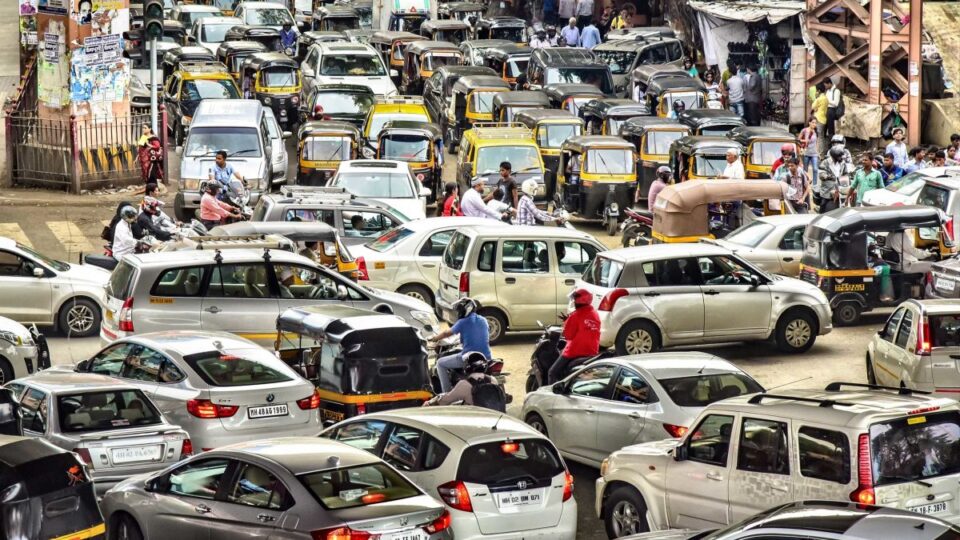In the bustling city of Mumbai, traffic congestion is a prevalent issue that poses hazards to both commuters and pedestrians alike. However, with the advent of technology and the rise of data-driven solutions, there’s hope for alleviating these challenges. By leveraging the insights from every reputable data scientist course, authorities are actively combating traffic hazards to ensure safer roads and smoother traffic flow.
Analysing Traffic Patterns
Through data science methodologies, traffic patterns in Mumbai are meticulously analysed to identify congestion hotspots, peak traffic hours, and areas prone to accidents. By collecting and processing data from various sources, such as traffic cameras, GPS devices, and mobile applications, authorities gain valuable insights into the underlying causes of traffic congestion. They can devise targeted interventions to address them.
Predictive Modelling for Accident Prevention
One of the key applications of a data science course in Mumbai is predictive modelling for accident prevention. By analysing historical traffic data and identifying patterns associated with accidents, predictive algorithms can anticipate potential hazards and alert authorities to take proactive measures. This proactive approach enables timely deployment of resources and implementation of traffic management strategies to mitigate the risk of accidents and safeguard commuters.
Real-Time Traffic Management
Real-time traffic management systems powered by data science enable authorities to monitor traffic conditions in real time and respond swiftly to emerging situations. By integrating data from traffic sensors, surveillance cameras, and crowd-sourced information, traffic management centres can make informed decisions regarding traffic signal timings, lane closures, and rerouting strategies to optimise traffic flow and minimise congestion on Mumbai’s roads.
Smart Traffic Signage and Infrastructure
Data-driven insights derived from every data scientist course inform the design and implementation of smart traffic signage and infrastructure in Mumbai. By analysing traffic behaviour and user preferences, authorities can deploy dynamic signage systems that provide real-time information on traffic conditions, alternative routes, and safety alerts to motorists. Additionally, smart infrastructure solutions such as adaptive traffic signals and intelligent road markings enhance the efficiency of traffic management operations and improve overall road safety.
Public Awareness Campaigns
Beyond infrastructure and technology, data science also plays a crucial role in designing public awareness campaigns to promote safe driving practices and minimise traffic hazards in Mumbai. By assessing demographic data and social media trends, authorities can tailor their messaging and outreach efforts to target specific audience segments and maximise the impact of awareness campaigns. Furthermore, data analytics can help evaluate the effectiveness of these campaigns by tracking key performance indicators such as awareness levels, behavioural changes, and road safety metrics.
Integration with Public Transportation Systems
Data science is instrumental in optimising the efficiency and reliability of public transportation systems in Mumbai. By analysing ridership data, route performance metrics, and passenger feedback, authorities can identify opportunities for improvement and implement measures to enhance the overall quality of public transit services. Integration with data-driven solutions allows for better coordination between different means of transportation, such as buses, trains, and metro systems, resulting in seamless interconnectivity and improved accessibility for commuters.
Environmental Impact Assessment
Data science techniques are also employed to assess the environmental impact of traffic congestion and vehicle emissions in Mumbai. Through air quality monitoring, emission modelling, and environmental risk analysis, authorities can evaluate the ecological footprint of transportation activities and develop strategies to mitigate various negative effects on air quality and public health. Data-driven insights inform policy decisions and infrastructure investments to promote sustainable transportation practices and reduce environmental pollution in the city.
Collaboration with Technology Partners
Collaboration with technology partners and industry stakeholders is essential for the successful implementation of data-driven solutions to combat traffic hazards in Mumbai. Public-private partnerships enable access to cutting-edge technologies, data analytics tools, and expertise required to develop innovative traffic management solutions and deploy advanced infrastructure projects. By leveraging the strengths of both the public and private sectors, Mumbai can accelerate its journey towards becoming a smarter and safer city with a robust transportation network powered by data science.
Conclusion
In conclusion, using a data science course in Mumbai holds immense potential in addressing traffic hazards and improving road safety in the city. By harnessing the power of data analytics, authorities can gain valuable insights into traffic patterns, predict potential hazards, and implement targeted interventions to mitigate risks and ensure safer roads for all. As Mumbai continues to embrace data-driven solutions, the future holds promise for a safer and more efficient transportation network that benefits residents and commuters alike.
Business Name: Data Science, Data Analyst and Business Analyst Course in Mumbai
Address: 1304, 13th floor, A wing, Dev Corpora, Cadbury junction, Eastern Express Highway, Thane, Mumbai, Maharashtra 400601 Phone: 095132 58922

